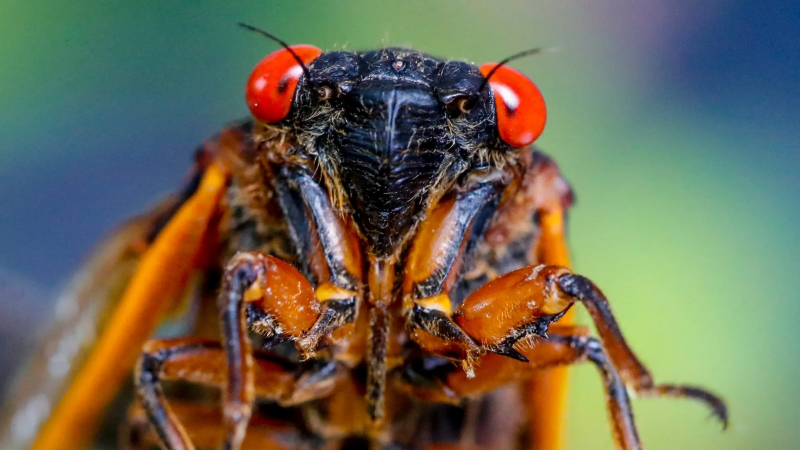What do cicadas sound like? These noisy insects might be in your state this year
What's that sound? It may sound like a very loud buzzing or droning that lasts all day and into the night.
But before you call the police to report what you think could be a siren, whine or roar, check outside: it's probably just the cicadas.
This year, two cicada broods are emerging at the same time in around 17 Midwestern and Southeastern states, a rare event that hasn't happened since 1803. Scientists estimate that trillions of cicadas in Broods XIX and XIII will emerge, eat, reproduce and die before the next generation heads underground to wait for another 13 or 17 years.
These periodical cicadas, which emerge every 13 or 17 years depending on the brood, differ from the annual cicadas that appear every year in many states.
Here's what to know about the sounds cicadas make.
Are cicadas dangerous?Busting myths on the harmfulness of the noisy pests.
What do cicadas sound like?
The loud sounds that you hear come from male cicadas looking for females to mate with, according to Arizona State University.
Male abdomens are almost completely hollow, and when sound waves from tymbals enter the hollow area, the bounce around, which can make the sound loud. Tymbals are a thin, ridged drum-like structure of a cicada's exoskeleton made of resilin.
Females also make sounds to attract males, Arizona State University says, but they use their wings to make a clicking sound.
Noisy Planet, a program from the National Institute of Health, described the sounds cicadas make as the "whining of electrical wires rising and falling" that can be as loud as a lawnmower, motorcycle or tractor.
Why do cicadas make so much noise?
You'll have to thank the male cicadas for all that screeching.
Male cicadas synchronize their calls and produce congregational songs, according to Britannica, which establish territory and attract females. There is also a courting call that they make before mating.
Unluckily for us, the 13-year and 17-year brood cicadas are the loudest, partially because of the sheer number of them that emerge at once.
How loud can cicadas get?
You'll know when the trillions of cicadas emerging soon make their entrance, as the species is famous for the amount of noise they make.
When Brood X emerged in 2021, both journalists and citizens reported noise levels ranging from 90-100 decibels, according to the Centers for Disease Control and Prevention, who also noted that cicada noise 3 feet from a heavily infested tree can approach 100 decibels.
While they are loud, the noise you hear from cicadas is unlikely to cause hearing loss. The CDC says the exposure period, duration and distance is just as important as how loud a sound is when influencing hearing loss.
For example, you can listen to a noise that is 85 decibels for 8 hours safely, 94 decibels for 1 hour safely or a noise that is 100 decibels for 15 minutes safely.

2024 double cicada broods: Check out where Broods XIII, XIX will emerge
The two cicada broods will emerge in a combined 17 states across the Southeast and Midwest, with an overlap in parts of Illinois and Iowa.
They will emerge once soil eight inches underground reaches 64 degrees, expected to begin in many states in mid-May and lasting through late June.
The two broods last emerged together in 1803, when Thomas Jefferson was president.
Disclaimer: The copyright of this article belongs to the original author. Reposting this article is solely for the purpose of information dissemination and does not constitute any investment advice. If there is any infringement, please contact us immediately. We will make corrections or deletions as necessary. Thank you.



